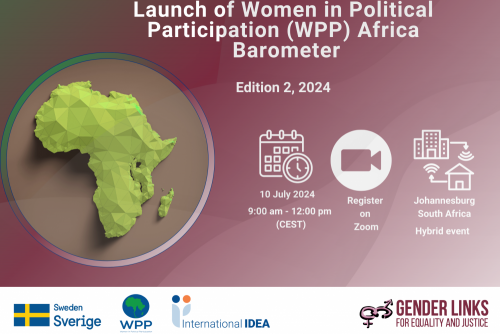
With women's representation in parliament up by just one percentage point since the WPP Barometer in 2021, it would take until 2100—at this rate—for gender parity to be achieved. But 41 African countries now have quotas of one kind or the other at local and or national level. Africa is home to the global leader of WPP (Rwanda, with 61% women in parliament) but also one of the lowest (Nigeria, at 4%).
The WPP Barometer coincides with consultations on the CEDAW General Resolution 40 that breaks new ground by making 50% (not 30%) the aspirational norm for WPP. The General Resolution 40 also goes ‘beyond numbers’ in a serious way, challenging governments to consider measures they can take to promote diversity, inclusion, climate justice, AI and genuine participation. For Africa, the future is young, and it is feminine!
Contents
Foreword
Executive summary
1. Introduction
2. Electoral systems and temporary special measures
3. Political parties
4. Electoral laws and management
5. Violence against women and politics
6. Media and social media
7. Role of men in women’s political participation
8. Making a difference
9. Into the future
Annexes
International IDEA at a glance
Advancing democracy worldwide, as a universal human aspiration and an enabler of sustainable development, through support to the building, strengthening and safeguarding of democratic political institutions and processes at all levels.
About International IDEA









